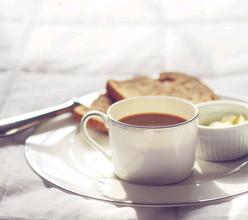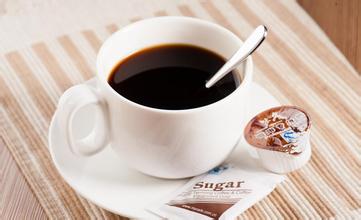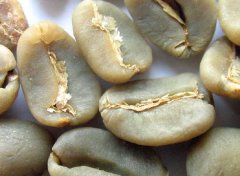Boutique coffee Blue Mountain Coffee Highland Coffee Jamaica Blue Mountain Coffee producing area Manor introduction
Jamaica Blue Mountain Coffee may be the most famous coffee in the world, but few people actually know its history and why its price is so high. The first to introduce coffee to the island of Jamaica in 1789 was a Frenchman fleeing the French Revolution. The first coffee cultivated was to increase French local consumption and then export, and the local industry was very small for the first 100 years. But in 1932 the Jamaica Congress passed laws encouraging coffee farming to reduce the island's dependence on sugar exports. For Blue Mountain coffee quality assurance, modifications were made to the Jamaica Coffee Industry to standardize processing, improve coffee quality, and equalize marketing to save the fate of premium coffee. The Jamaica Industry Association has taken responsibility for the quality of Blue Mountain coffee in Jamaica. The smaller coffees that thrive on the island are equally as good, and final authority is given to Jamaica coffee exports-all coffee must pass through the Jamaica Industries Association before it can be exported.
One might ask why Jamaica's Blue Mountain Coffee is so special. The answer is everything about it. The real Blue Mountain Coffee is one of the world's best grown coffees, and Jamaica's weather, geology and terrain combine to provide the ideal location. Designated Jamaica Blue Mountain Coffee can only be grown in the Blue Mountains region, north east of Kingston on Jamaica Island. Coffee is grown on hills up to 1800 meters (almost 6000 feet) high, which is quite high for Arabica, and the hills are very uneven, making the harvesting process very difficult (coffee is harvested almost exclusively by women). The trees are mainly small seed species "Geisha High Bred" type. Seeds from these trees have been exported to other countries such as Hawaii, Kenya, Papua New Guinea and elsewhere, but there they have been unable to recreate the flavor of Blue Mountain coffee beans.
In the steep and high altitude mountains, carefully cultivated and harvested, all Jamaica Blue Mountain coffee is ground, tasted and distributed by the Jamaica Industry Association. The coffee in the cup tastes very clean, and it is one of the sweetest coffees in the world. This taste has been described by Jim Reynolds in Peet Coffee and Tea: "The best example of Jamaica Blue Mountain coffee is that it has an aromatic, smooth consistency"..."It gives me a feeling of gem-like quality. It's precious like a jewel. It's complex, but it's very mild, it's sweet, it's very alcoholic. You must taste it in order to know what I am talking about." The unique growing conditions and care taken in all production processes make Jamaica Blue Mountain Coffee famous.
Jamaica is one of the smaller coffee producing regions in the world, harvesting approximately 40000 - 60kg bags/sack per year (Jamaica Blue Mountain coffee is actually shipped mostly in 70kg barrels, they are the last country to still use this traditional packaging method, but their production is 60kg/sack, because that is the international standard for coffee production measurement). Compare Brazil, the world's largest coffee exporter, with annual production in 3000000 bags- 60 kg/sack.
Until 2008, the Japanese continued to invest heavily in Jamaica's Blue Mountain coffee chain and promised to underwrite 90 percent of its annual production. As a result, the rest of the world has only 10% of the quota left, creating a persistent trend of demand exceeding supply and prices rising accordingly.
The unique growth conditions give rise to the unique flavor of Blue Mountain Coffee, which also makes it one of the "best coffee". Global 100% Pure Blue Mountain Coffee is produced in a specific area of the Blue Mountains in eastern Jamaica. During its cultivation period and every step of the processing process, it has passed the strict quality management standards of the Jamaica Coffee Industry Bureau before it can be certified as "Pure Jamaica Blue Mountain Coffee

Important Notice :
前街咖啡 FrontStreet Coffee has moved to new addredd:
FrontStreet Coffee Address: 315,Donghua East Road,GuangZhou
Tel:020 38364473
- Prev

Aroma rich and unique Bolivian coffee varieties Flavor taste Manor introduction
Early Bolivian coffee was of poor quality and poorly marketed. The coffee cherries are usually picked and then simply peeled and sent all the way to the processing plant. Due to inadequate infrastructure, transportation is underdeveloped. Coffee farmers have to overcome rugged mountain roads to transport beans to higher altitudes in La Paz for washing. If coffee is not delivered in time,
- Next

4C Association Coffee Certification Coffee Bean Certification quality Coffee
About the translator: Mo Lizhen (1966 ~), female, bachelor degree in agriculture, has been engaged in scientific research, production techniques, training and cup products of small seed coffee in Pu'er since 1988. He has published many papers in Tropical crop Research, Yunnan Hot farming Science and Technology and Tropical Agricultural Science, and published a monograph on High yield and quality cultivation techniques of small seed Coffee. 4C certification
Related
- Detailed explanation of Jadeite planting Land in Panamanian Jadeite Manor introduction to the grading system of Jadeite competitive bidding, Red bid, Green bid and Rose Summer
- Story of Coffee planting in Brenka region of Costa Rica Stonehenge Manor anaerobic heavy honey treatment of flavor mouth
- What's on the barrel of Blue Mountain Coffee beans?
- Can American coffee also pull flowers? How to use hot American style to pull out a good-looking pattern?
- Can you make a cold extract with coffee beans? What is the right proportion for cold-extracted coffee formula?
- Indonesian PWN Gold Mandrine Coffee Origin Features Flavor How to Chong? Mandolin coffee is American.
- A brief introduction to the flavor characteristics of Brazilian yellow bourbon coffee beans
- What is the effect of different water quality on the flavor of cold-extracted coffee? What kind of water is best for brewing coffee?
- Why do you think of Rose Summer whenever you mention Panamanian coffee?
- Introduction to the characteristics of authentic blue mountain coffee bean producing areas? What is the CIB Coffee Authority in Jamaica?

